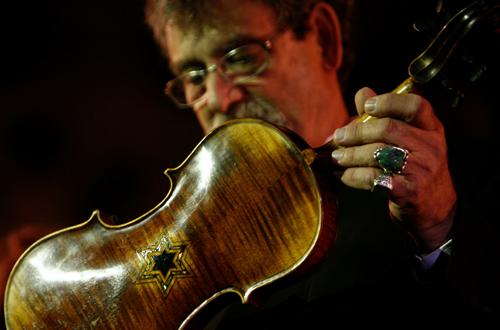Sixteen surviving violins from Holocaust play again

September 26, 2008
JERUSALEM – Sixteen violins found in Nazi concentration camps and abandoned Jewish communities after World War II have made music together for the first time in a concert outside the walls of Jerusalem’s Old City.
The violins were restored by Israeli violin maker Amnon Weinstein, who repairs violins left behind by Jews who were taken away by Nazis during the war, when six million Jews were killed.
“Jewish violins, outside the walls of Jerusalem, it’s a dream,” Weinstein told the Haaretz daily.
The concert began with Weinstein picking up each of the 16 violins and handing it to the violinist who would be playing it. It was the first time all the restored violins have been played together in public since they were lost in the turmoil of the Holocaust, organizers said.
The violinists were joined by the Istanbul Philharmonic Orchestra and the Symphony Orchestra of Raanana, Israel.
Get The Daily Illini in your inbox!
A centerpiece of the event was a violin organizers say was once owned by a 12-year-old boy named Motele. They said Motele played for German officers while hiding with a group of Jewish rebels on the Russian front. He is said to have hidden his violin in the German compound and used its case to smuggle in explosives to help the Russian Jewish irregular forces retake the town.
The concert ended Wednesday evening with a 12-year-old boy playing the Israeli national anthem on Motele’s violin in commemoration of Israel’s 60th anniversary this year.
The chief justice of the Israeli Supreme Court and members of the parliament were among 3,000 people in the audience. The ambassador of Norway also attended. One of the violins was recovered and kept in Norway, said one of the event’s producers, Adi Arbel.
“It took a while even to get permission to do this kind of event,” Arbel said, referring to the security concerns about the valuable instruments.






